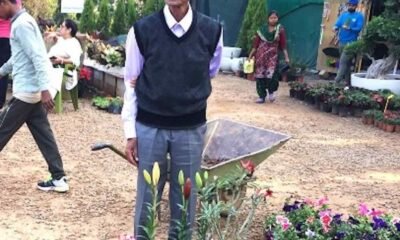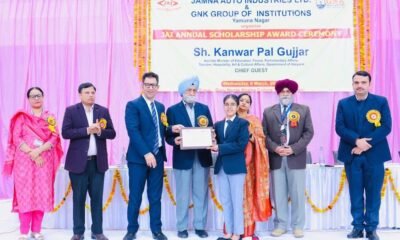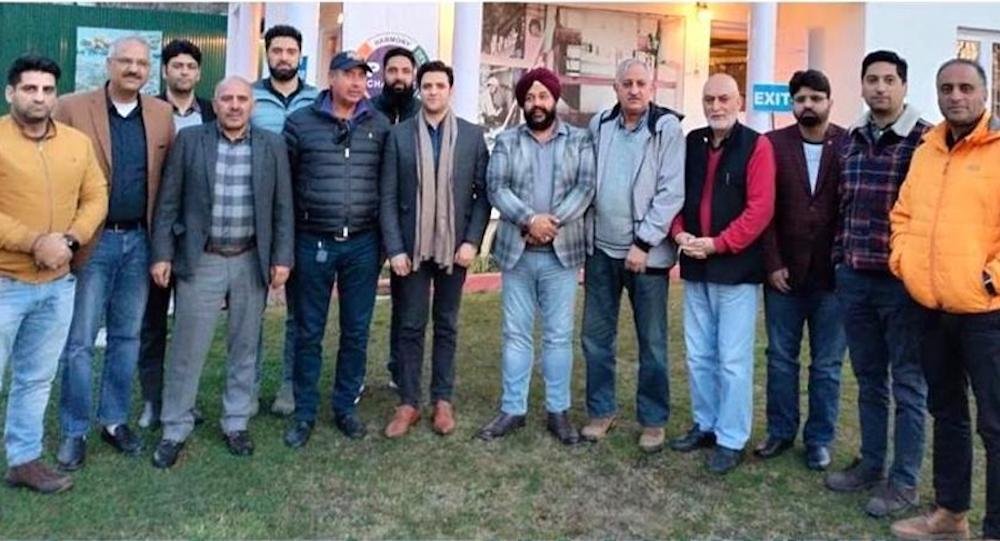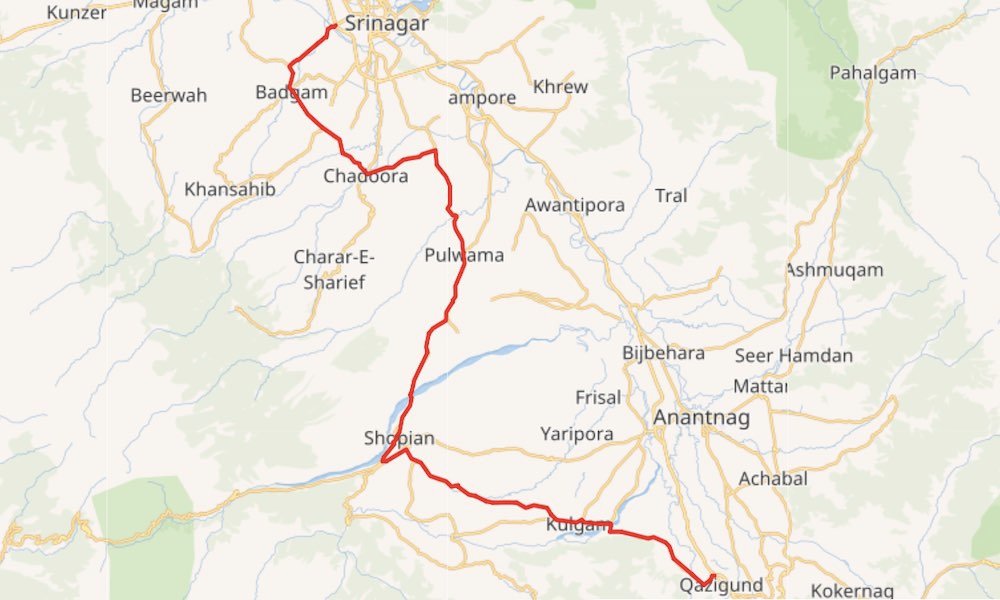Visits Kulgam’s Ashtthal village under Back to Village-3 programme
BK News
Kulgam, Oct 4: Stating that agriculture and horticulture activities need to be viable, stable and sustainable, Lieutenant Governor Manoj Sinha Sunday said that agriculture and horticulture sectors in Jammu and Kashmir have been provided Rs 1872 crore for the current financial year, with an addition of Rs 680 crore as compared to last year.
The LG was addressing a gathering of people at Asththal village of Kulgam district during the Back to Village-3 programme, according to an official spokesperson.
The Lt Governor said the innovative financing, convergence of schemes, enabling infrastructure, effective and efficient implementation will be key to improve growth prospects of J&K. With hard work, dedication and better execution on the ground, every individual in the villages will attain social empowerment, he said.
“Jammu and Kashmir has been provided with funds to an excess of Rs 1951 crore for the development of its villages and people this year. Agriculture & Horticulture sectors provided Rs 1872 crore, to an excess of Rs 680 crore with respect to last year,” he said, according to the statement.
“I am working on four key points for the development of J&K: Accelerating growth, providing benefits of social security and social welfare schemes to all, eliminating regional disparities and effective execution of works.”
LG said that the means and resources abound and with people’s participation, soon there will be no backward area in the entire J&K. “I have brought government at your doorstep. Now, you shall decide the works to be completed and to be taken up on priority. Back to Village is a celebration of people’s participation in development. The success of Back to Village programmes is entirely due to the active participation of the masses,” he said.
The Lt Governor observed that J&K has a lot of potential for growth in agriculture and horticulture sectors. Agriculture and horticulture activities need to be viable, stable, and sustainable. People are requested that during the ongoing Back to Village activities, exhaustive information sharing and discussions with concerned officers are held to increase productivity, ensure better inputs, increase implementation and execution of technology and proper guidance with respect to various government initiatives and schemes.
Highlighting the government’s initiatives, the Lt Governor said that the administration is working on setting food processing units, which once installed, would greatly help the fruit growing areas of the district. Once established, such units will generate employment for the locals as well as help in the overall development of the region. Similarly, Animal Husbandry sector would also be focussed upon by the government post discussions and public feedback on the subject during B2V3.
The Lt Governor said that in the recently sanctioned economic package and the upcoming Mega Industrial Package, the focus has been laid on 1) Industry, Business & Services 2) Agriculture & allied sectors, village industries 3) Technology & Innovation 4) Infrastructure 5) Financial Inclusion & Social Security.
Under the new economic package announced recently, the Farmer-Mandi link will be strengthened so that the producers get more options and better prices for their produce. Similarly, the number of satellite markets is to be increased from 17 to 22, he added.
“Upon my arrival to J&K, I was surprised to notice unusual delays in projects, and I ensure that those responsible for unwarranted delays will be made answerable. Roadmaps for speedy execution have been made and delays will no more be part of the system,” the Lt Governor said.
“It is heartening to know that Kulgam has achieved 98% Aadhar-Ration Card seeding, more than 27,000 students have been given scholarships and around 8 thousand people have been linked to the government’s health schemes,” the Lt Governor said.
Entrepreneurs are already earning well through beekeeping in the district. The government would like to encourage and help more such entrepreneurs and innovative business projects. “During B2V3, two youth from each Panchayat would be selected and provided handholding and financial assistance for setting up their own business. More than 8,000 youth will be benefitted from this initiative across J&K. Special Desk have been set up by J&K Bank for assisting young boys and girls in setting up their business,” the Lt Governor said.
He directed the deputy commissioner and other district officers to consider the tough terrain of the district and plan awareness activities accordingly so that nobody is left uneducated about the programme. He also asked the elected PRI members to generate awareness for the benefit of the local population. Every Wednesday is dedicated to public grievance redressal at Sub-Division level on a rotation basis, he added.
Quoting several economists, the Lt Governor asked the senior officers to focus their energies on land, labour, material and services for the wholesome development of villages.
The Lt Governor also advised the public to religiously follow COVID related SOPs during and after the Back to Village programme.
Deputy Commissioner, while briefing about the achievements made during Jan Abhiyan programme, informed the Lt Governor that about 913 KCC cases amounting to Rs 3.50 crore have been sanctioned under Agriculture & Allied sectors, besides 3060 Domicile/Category certificates issued during Jan Abhiyan programme.

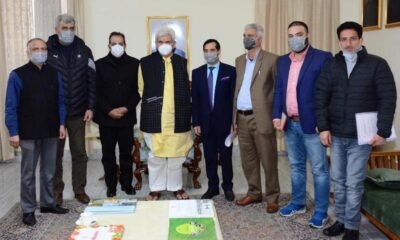

 Industry4 years ago
Industry4 years ago


 Economy2 years ago
Economy2 years ago
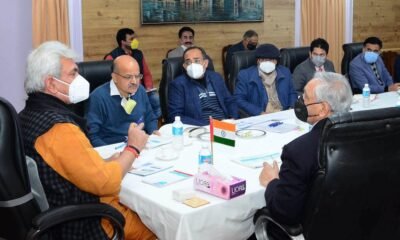

 Energy4 years ago
Energy4 years ago
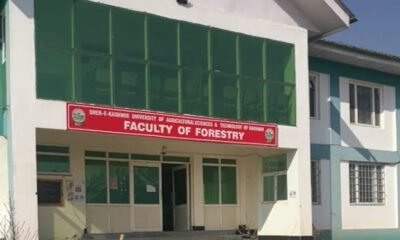

 Infra4 years ago
Infra4 years ago
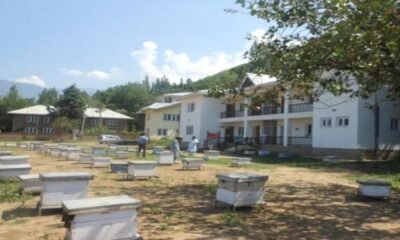

 AgriBiz4 years ago
AgriBiz4 years ago
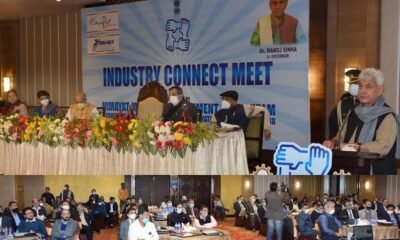

 Jobs5 years ago
Jobs5 years ago
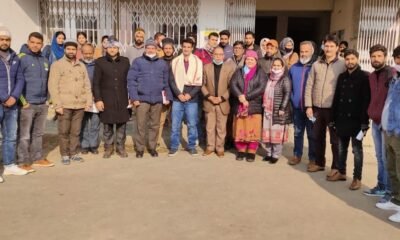

 Careers5 years ago
Careers5 years ago


 Industry5 years ago
Industry5 years ago









